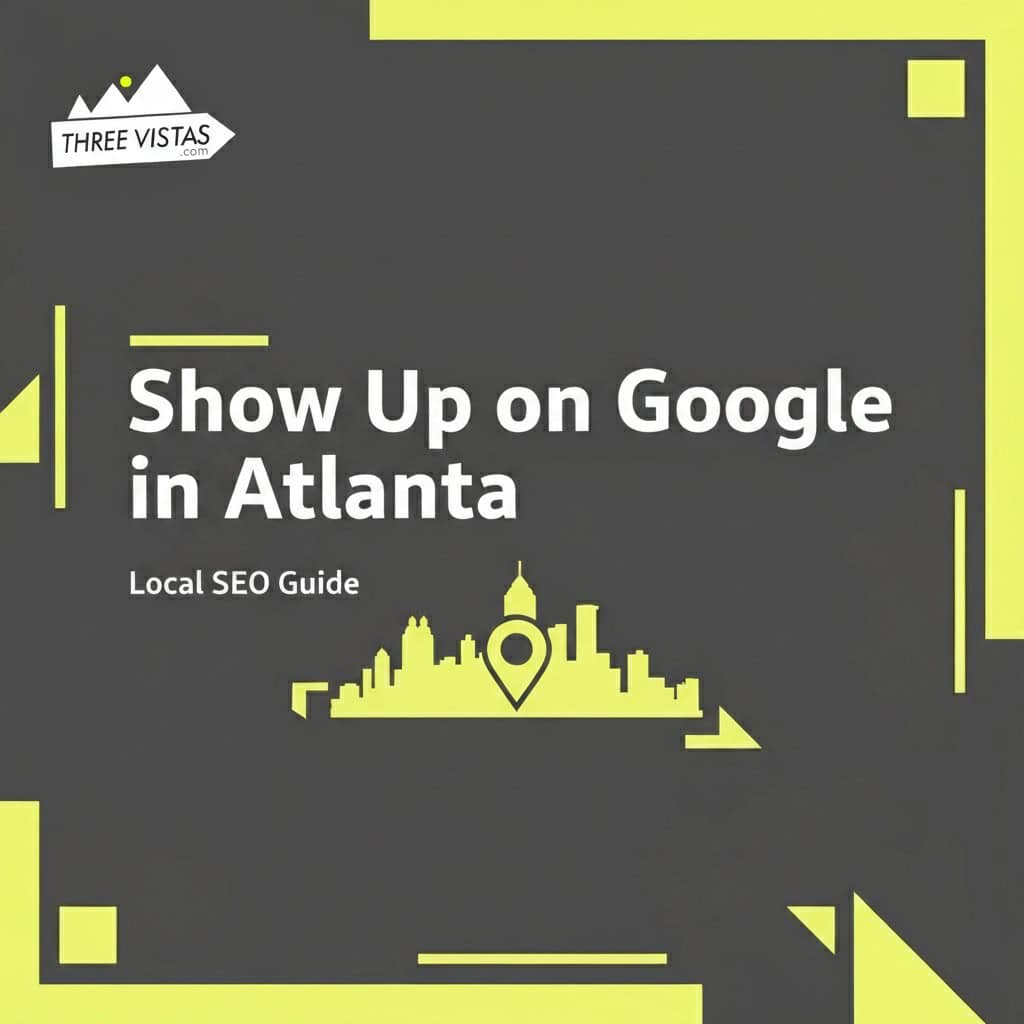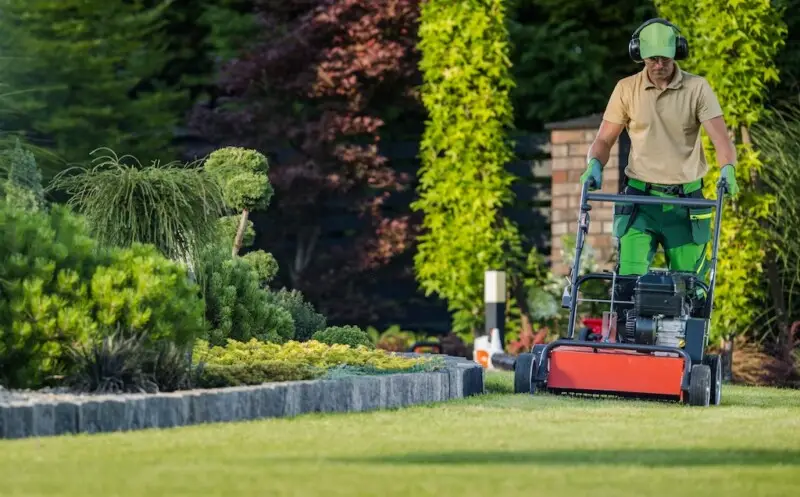How to Show Up on Google
TOPICS DISCUSSED
How to Show Up on Google in Atlanta: Local SEO Guide for Small Businesses
When someone in Atlanta searches for “coffee shop near me,” “Atlanta plumber,” or “best lawyer in Buckhead,” does your business appear in the results? If not, you’re invisible to potential customers who are actively looking for exactly what you offer. Local SEO (Search Engine Optimization) is the process of optimizing your online presence to appear in local search results. For Atlanta small businesses, mastering local SEO isn’t optional—it’s essential for survival and growth in an increasingly competitive market. This comprehensive guide will show you exactly how to show up on Google in Atlanta and dominate local search results in your industry.
Why Local SEO Matters for Atlanta Businesses
Atlanta is a thriving metropolitan area with over 6 million people in the metro region. That’s a massive potential customer base, but it also means intense competition. When potential customers search for services in Atlanta, Google shows them the most relevant, trustworthy local businesses. Consider these statistics:
- 46% of all Google searches have local intent
- 76% of people who search for something nearby visit a business within 24 hours
- 28% of local searches result in a purchase
- 88% of consumers trust online reviews as much as personal recommendations
If your business doesn’t appear in local search results, you’re losing customers to competitors every single day—even if you offer better service or lower prices.
Understanding Google’s Local Search Results
When someone searches for a local business or service in Atlanta, Google displays three types of results:
- Local Pack (Map Pack): The top 3 businesses shown with a map. This is prime real estate and gets the most clicks.
- Organic Results: Traditional search results that appear below the Local Pack.
- Google Ads: Paid advertisements at the very top (marked as “Sponsored”).
Your goal is to appear in both the Local Pack and organic results. Here’s how to make that happen.
Step 1: Claim and Optimize Your Google Business Profile
Your Google Business Profile (formerly Google My Business) is the single most important factor for local SEO. It’s what allows you to appear in the Local Pack and on Google Maps.
Claiming Your Profile
- Go to google.com/business
- Search for your business name
- If it exists, claim it; if not, create a new profile
- Verify your business (usually by postcard, phone, or email)
Optimizing Your Google Business Profile
Complete Every Section: Google favors complete profiles. Fill out:
- Business name (use your actual business name, not keyword-stuffed)
- Accurate address
- Phone number (local Atlanta number is best)
- Website URL – Business category (choose the most specific category)
- Business hours (including special hours for holidays)
- Service area (if you serve customers at their location)
- Business description (750 characters max—use them wisely)
Choose the Right Categories: Your primary category is crucial. For example:
- “Web Design Agency” not just “Marketing Agency”
- “Personal Injury Attorney” not just “Lawyer”
- “Italian Restaurant” not just “Restaurant”
Add secondary categories that also apply to your business.
Add High-Quality Photos: Businesses with photos receive 42% more requests for directions and 35% more clicks to their websites. Upload:
- Logo
- Cover photo
- Interior photos
- Exterior photos
- Team photos
- Product/service photos
- Before and after photos (if applicable)
Aim for at least 10-15 high-quality, professional photos.
Create Google Posts: Google Posts appear directly in your Business Profile and can highlight:
- Special offers and promotions
- Events
- New products or services
- Company updates
- Blog posts
Post at least once per week to keep your profile active and engaging.
Enable Messaging: Allow customers to message you directly from your Google Business Profile. Quick responses improve customer satisfaction and may boost your rankings.
Add Products and Services: List specific services with descriptions and pricing (if applicable). This helps Google understand exactly what you offer.
Step 2: Build and Manage Online Reviews
Reviews are a critical ranking factor for local SEO and heavily influence customer decisions. Businesses with more positive reviews rank higher and convert better.
Getting More Reviews
- Ask at the Right Time: Request reviews when customers are happiest—right after a successful project, positive interaction, or resolved issue.
- Make It Easy: Send direct links to your Google review page. The easier you make it, the more reviews you’ll receive.
- Ask in Multiple Ways:
- In-person requests
- Follow-up emails
- Text messages
- Receipt inserts
- Website prompts
- Respond to Every Review: Thank customers for positive reviews and address negative reviews professionally. This shows you value feedback and care about customer experience.
Review Best Practices
- Never buy fake reviews (Google will penalize you)
- Don’t offer incentives for reviews (against Google’s policies)
- Respond within 24-48 hours
- Use keywords naturally in your responses
- Address specific points mentioned in reviews
Aim for a steady stream of new reviews. 5-10 new reviews per month is ideal for most small businesses.
Step 3: Optimize Your Website for Local Search
Your website is the foundation of your online presence. It needs to be optimized for both users and search engines.
Local Keyword Optimization
Target keywords that include Atlanta or specific neighborhoods:
- “Atlanta [your service]”
- “[Your service] in Atlanta” – “[Neighborhood] [your service]”
- “Best [your service] Atlanta”
Use these keywords naturally in:
- Page titles
- Meta descriptions
- Header tags (H1, H2, H3)
- Body content
- Image alt text
- URL structures
Create Location-Specific Pages
If you serve multiple Atlanta neighborhoods or surrounding cities, create dedicated pages for each location. Example structure:
- Homepage: Atlanta Web Design Services
- Location page: Buckhead Web Design Services
- Location page: Midtown Web Design Services
- Location page: Decatur Web Design Services
Each page should include:
- Unique content about serving that area
- Local landmarks and references
- Testimonials from customers in that area
- Embedded Google Map
- Local contact information
NAP Consistency
NAP stands for Name, Address, Phone number. These must be identical everywhere they appear online:
- Your website
- Google Business Profile
- Social media profiles
- Online directories
- Citations
Even small variations (like “Street” vs “St.”) can confuse Google and hurt your rankings.
Mobile Optimization
Over 60% of local searches happen on mobile devices. Your website must: – Load quickly (under 3 seconds) – Display properly on all screen sizes – Have easy-to-tap buttons and links – Include click-to-call phone numbers – Be easy to navigate with one hand
Use Google’s Mobile-Friendly Test tool to check your site.
Schema Markup
Add local business schema markup to your website. This code helps Google understand:
- Your business type
- Location and service area
- Hours of operation
- Contact information
- Reviews and ratings
Schema markup can help you appear in rich snippets and improve click-through rates.
Step 4: Build Local Citations and Directory Listings
Citations are mentions of your business name, address, and phone number on other websites. They help Google verify your business exists and improve local rankings.
Priority Directories for Atlanta Businesses
- National Directories:
- Yelp
- Yellow Pages
- Better Business Bureau
- Angie’s List (now Angi)
- Thumbtack
- Facebook Business Page
- Atlanta-Specific Directories:
- Atlanta Business Chronicle
- Atlanta Chamber of Commerce
- Discover Atlanta
- Local neighborhood associations
- Atlanta Magazine’s business directory
- Industry-Specific Directories:
- Lawyers:
- Avvo
- Justia
- FindLaw
- Restaurants:
- OpenTable
- TripAdvisor
- Zomato
- Healthcare:
- Healthgrades
- Zocdoc
- Vitals
- Home Services:
- HomeAdvisor
- Porch
- Houzz
- Lawyers:
Citation Best Practices
- Use identical NAP information everywhere
- Fill out profiles completely
- Add photos and descriptions
- Include your website URL
- Choose appropriate categories
- Keep information updated across all platforms
Step 5: Create Local Content
Content marketing helps you rank for more keywords and establishes you as a local authority.
Blog Post Ideas for Atlanta Businesses
- “Top 10 [Your Industry] Trends in Atlanta for 2025”
- “A Guide to [Your Service] in [Atlanta Neighborhood]”
- “How Atlanta Businesses Can [Solve Specific Problem]”
- “Behind the Scenes at [Your Business Name] in Atlanta”
- “Why Atlanta Residents Choose [Your Business] for [Service]”
Local Content Tips
Reference Atlanta Landmarks and Neighborhoods: Mention specific areas like:
- Buckhead
- Midtown
- Virginia-Highland
- Decatur
- Sandy Springs
- Marietta
- Roswell
Discuss Local Events: Write about:
- Atlanta festivals and events
- Local business news
- Community involvement
- Sponsorships and partnerships
Feature Local Customers: Share case studies and success stories from Atlanta clients (with permission).
Create Location-Specific Resources: Develop guides, checklists, or tools specifically for Atlanta residents.
Step 6: Build Quality Backlinks
Backlinks (links from other websites to yours) are a major ranking factor. Quality local backlinks are especially valuable.
How to Earn Atlanta Backlinks
Local Partnerships: Partner with complementary businesses and link to each other’s websites.
Sponsor Local Events: Event sponsorships often include website links.
Join Local Organizations:
- Atlanta Chamber of Commerce
- Neighborhood business associations
- Industry-specific groups
- Rotary Club or similar organizations
Get Featured in Local Media:
- Atlanta Journal-Constitution
- Atlanta Business Chronicle
- Local neighborhood blogs
- Atlanta Magazine
- Local TV news websites
Guest Posting: Write articles for local blogs and publications with a link back to your site.
Local Resource Pages: Get listed on “best of Atlanta” lists, local resource guides, and community pages.
Step 7: Leverage Social Media for Local Visibility
While social media isn’t a direct ranking factor, it supports your local SEO efforts.
Social Media Best Practices for Atlanta Businesses
Use Location Tags: Tag your posts with Atlanta locations and neighborhoods.
Engage with Local Community: Follow, comment on, and share content from other Atlanta businesses and organizations.
Share Local Content: Post about Atlanta events, news, and community happenings.
Use Local Hashtags: Use hashtags like #Atlanta, #ATL, #AtlantaGA, #ShopLocalAtlanta, #AtlantaBusiness and other neighborhood-specific hashtags
Encourage Check-Ins: Ask customers to check in at your location on Facebook and Instagram.
Step 8: Monitor and Measure Your Results
Track your local SEO performance to understand what’s working and where to improve.
Key Metrics to Monitor
- Google Business Profile Insights:
- How customers find your listing (search vs. maps)
- Search queries used to find you
- Actions taken (calls, website visits, direction requests)
- Photo views
- Website Analytics:
- Organic traffic from Atlanta
- Keyword rankings for local terms
- Conversion rate from local visitors
- Bounce rate and time on site
- Ranking Positions:
- Where you appear in Local Pack
- Organic rankings for target keywords
- Rankings in different Atlanta neighborhoods
- Review Metrics:
- Number of reviews
- Average rating
- Review velocity (new reviews per month)
- Response rate and time
Tools to Use
- Google Analytics
- Google Search Console
- Google Business Profile Insights
- Local rank tracking tools (BrightLocal, Whitespark)
- Review monitoring tools
Common Local SEO Mistakes Atlanta Businesses Make
Inconsistent NAP Information: Different addresses or phone numbers across platforms confuse Google and hurt rankings.
Neglecting Google Business Profile: Not updating hours, responding to reviews, or adding photos.
Keyword Stuffing: Overusing “Atlanta” or other keywords unnaturally. Write for humans first.
Ignoring Mobile Users: A slow or poorly designed mobile site loses customers and rankings.
Buying Fake Reviews: This violates Google’s policies and can result in penalties or profile suspension.
Not Tracking Results: You can’t improve what you don’t measure.
Giving Up Too Soon: Local SEO takes 3-6 months to show significant results. Consistency is key.
Get Expert Help with Atlanta Local SEO
Local SEO is complex and time-consuming, but the results are worth it. Appearing at the top of local search results means more visibility, more customers, and more revenue for your Atlanta business. At Three Vistas, we specialize in local SEO for Atlanta businesses. We understand the unique characteristics of the Atlanta market and know exactly what it takes to rank in competitive local searches. From Google Business Profile optimization to local content creation and citation building, we handle every aspect of your local SEO strategy.
Our clients consistently rank in the Local Pack for their target keywords and see significant increases in calls, website traffic, and customers from local search. Ready to show up on Google in Atlanta? Contact Three Vistas today for a free local SEO audit and consultation. Let’s get your business the visibility it deserves in Atlanta’s competitive market.
Industries We Serve
Client Testimonials




